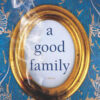-
 "Things We Hide from the Light" 1 × ₨ 650
"Things We Hide from the Light" 1 × ₨ 650 -
 A Footy Girl's 1 × ₨ 600
A Footy Girl's 1 × ₨ 600 -
 A Good Family 1 × ₨ 1,100
A Good Family 1 × ₨ 1,100 -
 In Unravel Me 1 × ₨ 350
In Unravel Me 1 × ₨ 350
Subtotal: ₨ 2,700
Title: The Emperor
Author: Ryszard Kapuściński
Genre: Non-fiction / Political History / Biography
Pub: 1978 (Polish), 1983 (in English)
The Emperor is a political non-fiction book by Polish journalist Ryszard Kapuściński. The account of the fall of Ethiopian Emperor Haile Selassie in this work is extremely important as it’s based on interviews made by Kapuściński with former courtiers, officials, and servants of the emperor’s court, which reveal a portrait of the highly centralized, authoritarian rule of the emperor and the decay of his regime, which, ultimately, led to his overthrow in 1974.
The book is told in vignettes; Selassie’s most intimate friends narrate the daily drama enacted in the court, its rituals, and the emperor’s disconnection with the troubles his country was facing. He skillfully uses these testimonies to illustrate how absurdist corruption combined with blind loyalty dominated the emperor’s rule. While seemingly a recount of the history of Ethiopia, The Emperor is often interpreted as an allegory on power, despotism, and the ineluctability of the downfall of these forms of dictatorships.
Themes:
Absolute Power and Corruption: The book looks at how Haile Selassie’s absolute dominance over Ethiopia alienated him from reality, from which things begin to decay into a quagmire of corruption.
Fragility of Authority: Kapuściński delves into how apparently unshakable structures can easily collapse under the pressure of their own absoluteness.
The Inanity of Palace Life: It exposes such a grotesquely surreal life in the emperor’s palace that often hides sycophancy and rituals behind its deterioration.
Downfall of Empire: Downfall of Haile Selassie’s regime reflects, through broader dimensions, as to how an imperial, probably autocratic mechanism rots and disintegrates with less proximity to people it governs.
Kapuściński’s writing is at once journalistic and literary in style. It fuses historical facts with a poetic, almost allegorical tone. The very structure of the book, short, fragmented testimonies, gives it an aura of mythology and metaphor, making it as much meditation on power as reportage. In understated, ironic style, he adds his critical tone to the book.
The Emperor is a landmark in reporting: historically vivid with quite philosophical contemplations on power and authority.
If you want more information or some points in the book discussed, please let me know!!!
Reviews
There are no reviews yet.